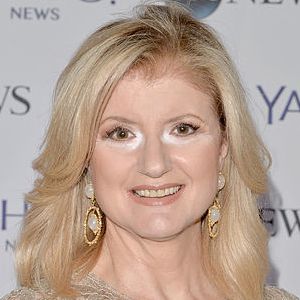Want to know what books Daniel Gilbert recommends on their reading list? We've researched interviews, social media posts, podcasts, and articles to build a comprehensive list of Daniel Gilbert's favorite book recommendations of all time.
1

"In this masterpiece, Jamil Zaki weaves together the very latest science with stories that will stay in your heart forever."--Angela Duckworth, author of Grit
Empathy is in short supply. We struggle to understand people who aren't like us, but find it easy to hate them. Studies show that we are less caring than we were even thirty years ago. In 2006, Barack Obama said that the United States was suffering from an "empathy deficit." Since then, things seem to have only gotten worse.
It doesn't have to be this way. In this groundbreaking book, Jamil Zaki... more "In this masterpiece, Jamil Zaki weaves together the very latest science with stories that will stay in your heart forever."--Angela Duckworth, author of Grit
Empathy is in short supply. We struggle to understand people who aren't like us, but find it easy to hate them. Studies show that we are less caring than we were even thirty years ago. In 2006, Barack Obama said that the United States was suffering from an "empathy deficit." Since then, things seem to have only gotten worse.
It doesn't have to be this way. In this groundbreaking book, Jamil Zaki shares cutting-edge research, including experiments from his own lab, showing that empathy is not a fixed trait--something we're born with or not--but rather a skill that can be strengthened through effort. He also tells the stories of people who embody this new perspective, fighting for kindness in the most difficult of circumstances. We meet a former neo-Nazi who is now helping to extract people from hate groups, ex-prisoners discussing novels with the judge who sentenced them, Washington police officers changing their culture to decrease violence among their ranks, and NICU nurses fine-tuning their empathy so that they don't succumb to burnout.
Written with clarity and passion, The War for Kindness is an inspiring call to action. The future may depend on whether we accept the challenge.
Praise for The War for Kindness
"A wide-ranging practical guide to making the world better."--NPR
"Relating anecdotes and test cases from his fellow researchers, news events and the imaginary world of literature and entertainment, Zaki makes a vital case for 'fighting for kindness.' . . . If he's right--and after reading The War for Kindness, you'll probably think so--Zaki's work is right on time." --San Francisco Chronicle
"In this landmark book, Jamil Zaki gives us a revolutionary perspective on empathy: Empathy can be developed, and, when it is, people, relationships, organizations, and cultures are changed."--Carol Dweck, author of Mindset
less 
Carol S. DweckIn this landmark book, Jamil Zaki gives us a revolutionary perspective on empathy: Empathy can be developed, and, when it is, people, relationships, organizations, and cultures are changed. (Source)

Angela DuckworthIn this masterpiece, Jamil Zaki weaves together the very latest science with stories that will stay in your heart forever. If you'd like the world to be a kinder place, starting with your own capacity for empathy, read The War for Kindness. You'll never be the same. (Source)

Arianna HuffingtonJamil Zaki's wonderful new book, The War for Kindness, shows that empathy isn't a fixed trait — it's something we can, and must, develop and nurture. https://t.co/LfRpjvhkY4 (Source)
2

One of the world's most esteemed and influential psychologists, Roy F. Baumeister, teams with New York Times science writer John Tierney to reveal the secrets of self-control and how to master it. In Willpower, the pioneering researcher Roy F. Baumeister collaborates with renowned New York Times science writer John Tierney to revolutionize our understanding of the most coveted human virtue: self-control.
In what became one of the most cited papers in social science literature, Baumeister discovered that willpower actually operates like a muscle: it can... more One of the world's most esteemed and influential psychologists, Roy F. Baumeister, teams with New York Times science writer John Tierney to reveal the secrets of self-control and how to master it. In Willpower, the pioneering researcher Roy F. Baumeister collaborates with renowned New York Times science writer John Tierney to revolutionize our understanding of the most coveted human virtue: self-control.
In what became one of the most cited papers in social science literature, Baumeister discovered that willpower actually operates like a muscle: it can be strengthened with practice and fatigued by overuse. Willpower is fueled by glucose, and it can be bolstered simply by replenishing the brain's store of fuel. That's why eating and sleeping- and especially failing to do either of those-have such dramatic effects on self-control (and why dieters have such a hard time resisting temptation).
Baumeister's latest research shows that we typically spend four hours every day resisting temptation. No wonder people around the world rank a lack of self-control as their biggest weakness. Willpower looks to the lives of entrepreneurs, parents, entertainers, and artists-including David Blaine, Eric Clapton, and others-who have flourished by improving their self-control.
The lessons from their stories and psychologists' experiments can help anyone. You learn not only how to build willpower but also how to conserve it for crucial moments by setting the right goals and using the best new techniques for monitoring your progress. Once you master these techniques and establish the right habits, willpower gets easier: you'll need less conscious mental energy to avoid temptation. That's neither magic nor empty self-help sloganeering, but rather a solid path to a better life.
Combining the best of modern social science with practical wisdom, Baumeister and Tierney here share the definitive compendium of modern lessons in willpower. As our society has moved away from the virtues of thrift and self-denial, it often feels helpless because we face more temptations than ever. But we also have more knowledge and better tools for taking control of our lives. However we define happiness-a close- knit family, a satisfying career, financial security-we won't reach it without mastering self-control. less 
Dan ArielyWillpower affects almost every aspect of our lives. From procrastination, to saving for retirement to exercising, Tierney and Baumeister have given us a wonderful book in which they not only share fascinating research on the subject but also provide simple tricks to help us tap into this important quality. (Source)

Steven PinkerThe psychologist Roy F. Baumeister has shown that the force metaphor has a kernel of neurobiological reality. In Willpower, he has teamed up with the irreverent New York Timesscience columnist John Tierney to explain this ingenious research and show how it can enhance our lives. . . . Willpower is an immensely rewarding book, filled with ingenious research, wise advice and insightful reflections... (Source)

David AllenWho knew that a book about such a daunting topic could be as wonderfully entertaining as it is enlightening! Tierney and Baumeister have produced a highly intelligent work full of fascinating information (and great advice) about a core element of modern living. Bravo. (Source)
3

"Christakis . . . expertly weaves academic research, personal experience and anecdotal evidence into her book . . . a bracing and convincing case that early education has reached a point of crisis . . . her book is a rare thing: a serious work of research that also happens to be well-written and personal . . . engaging and important."
--Washington Post
"What kids need from grown-ups (but aren't getting)...an impassioned plea for educators and parents to put down the worksheets and flash cards, ditch the tired craft projects (yes, you, Thanksgiving... more "Christakis . . . expertly weaves academic research, personal experience and anecdotal evidence into her book . . . a bracing and convincing case that early education has reached a point of crisis . . . her book is a rare thing: a serious work of research that also happens to be well-written and personal . . . engaging and important."
--Washington Post
"What kids need from grown-ups (but aren't getting)...an impassioned plea for educators and parents to put down the worksheets and flash cards, ditch the tired craft projects (yes, you, Thanksgiving Handprint Turkey) and exotic vocabulary lessons, and double-down on one, simple word: play."
--NPR.org
The New York Times bestseller that provides a bold challenge to the conventional wisdom about early childhood, with a pragmatic program to encourage parents and teachers to rethink how and where young children learn best by taking the child's eye view of the learning environment
To a four-year-old watching bulldozers at a construction site or chasing butterflies in flight, the world is awash with promise. Little children come into the world hardwired to learn in virtually any setting and about any matter. Yet in today's preschool and kindergarten classrooms, learning has been reduced to scripted lessons and suspect metrics that too often undervalue a child's intelligence while overtaxing the child's growing brain. These mismatched expectations wreak havoc on the family: parents fear that if they choose the "wrong" program, their child won't get into the "right" college. But Yale early childhood expert Erika Christakis says our fears are wildly misplaced. Our anxiety about preparing and safeguarding our children's future seems to have reached a fever pitch at a time when, ironically, science gives us more certainty than ever before that young children are exceptionally strong thinkers.
In her pathbreaking book, Christakis explains what it's like to be a young child in America today, in a world designed by and for adults, where we have confused schooling with learning. She offers real-life solutions to real-life issues, with nuance and direction that takes us far beyond the usual prescriptions for fewer tests, more play. She looks at children's use of language, their artistic expressions, the way their imaginations grow, and how they build deep emotional bonds to stretch the boundaries of their small worlds. Rather than clutter their worlds with more and more stuff, sometimes the wisest course for us is to learn how to get out of their way.
Christakis's message is energizing and reassuring: young children are inherently powerful, and they (and their parents) will flourish when we learn new ways of restoring the vital early learning environment to one that is best suited to the littlest learners. This bold and pragmatic challenge to the conventional wisdom peels back the mystery of childhood, revealing a place that's rich with possibility. less 
Steven PinkerAs the experts have bombarded parents with contradictory and ever more demanding advice, childrearing has become more confusing than ever, and the children themselves seem to have been left out of the picture. Parents, caregivers, teachers, and policy makers could have no surer guide through this morass than Erika Christakis. With scientific acumen, irreverent good sense, and a novelist’s eye for... (Source)

Daniel GilbertTeach your children well. It’s easier to sing than to do. Erika Christakis wants to foment a revolution in early childhood education, and with this deeply insightful, scientifically grounded, and utterly original book, she just may get her way. (Source)

Ng Rong XinThe Importance of being Little: What Young Children Really Need from Grownups by Erika Christakis - It’s a good read for anyone who wants to be a educator. (Source)
4

New York Times Bestseller
Travel the world with Eric Weiner, the New York Times bestselling author of The Geography of Bliss, as he journeys from Athens to Silicon Valley—and throughout history, too—to show how creative genius flourishes in specific places at specific times.
In The Geography of Genius, acclaimed travel writer Weiner sets out to examine the connection between our surroundings and our most innovative ideas. He explores the history of places, like Vienna of 1900, Renaissance Florence, ancient Athens, Song Dynasty Hangzhou, and... more New York Times Bestseller
Travel the world with Eric Weiner, the New York Times bestselling author of The Geography of Bliss, as he journeys from Athens to Silicon Valley—and throughout history, too—to show how creative genius flourishes in specific places at specific times.
In The Geography of Genius, acclaimed travel writer Weiner sets out to examine the connection between our surroundings and our most innovative ideas. He explores the history of places, like Vienna of 1900, Renaissance Florence, ancient Athens, Song Dynasty Hangzhou, and Silicon Valley, to show how certain urban settings are conducive to ingenuity. And, with his trademark insightful humor, he walks the same paths as the geniuses who flourished in these settings to see if the spirit of what inspired figures like Socrates, Michelangelo, and Leonardo remains. In these places, Weiner asks, “What was in the air, and can we bottle it?” less 
Walter IsaacsonWhy do certain places produce a spontaneous eruption of creativity? What made Athens and Florence and Silicon Valley? This witty and fun book has an insight in every paragraph. It’s a charming mix of history and wisdom cloaked as a rollicking travelogue filled with colorful characters. (Source)

Daniel GilbertEric Weiner has single-handedly invented a new nonfiction genre in which a brilliant and hilarious writer leaves his home and family to circle the globe in search of the answer to a timeless question. The Geography of Genius is an intellectual odyssey, a traveler’s diary, and a comic novel all rolled into one. Smart, original, and utterly delightful, this is Weiner’s best book yet. (Source)

Adam GrantIt’s rare to read a book that makes you laugh and learn, but Eric Weiner has done it again. This witty, wise explorer offers fascinating insights on how culture has inspired creativity across the ages—ripe for chats at water coolers and cocktail parties—and offers a practical map for how we can all become a bit more inventive. (Source)
Don't have time to read Daniel Gilbert's favorite books? Read Shortform summaries.
Shortform summaries help you learn 10x faster by:
- Being comprehensive: you learn the most important points in the book
- Cutting out the fluff: you focus your time on what's important to know
- Interactive exercises: apply the book's ideas to your own life with our educators' guidance.



